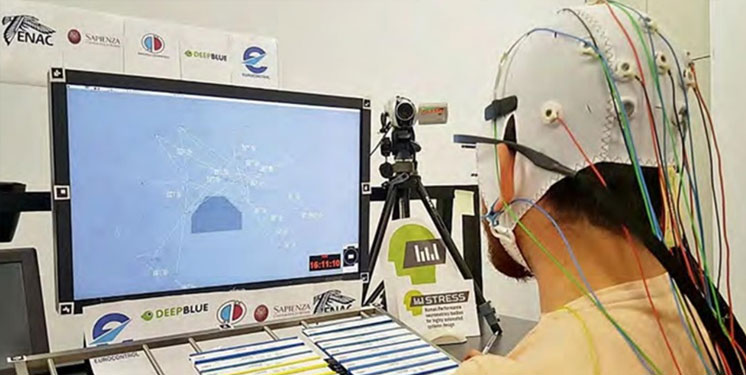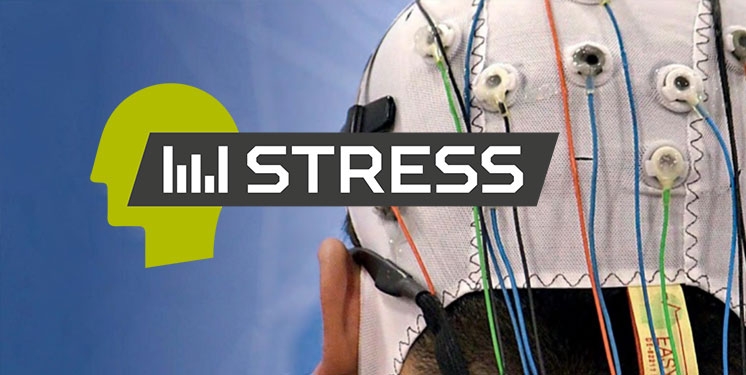The STRESS research project aims at providing guidelines for the design and use of automation technologies, in order to reduce the risks and increase the safety of the air traffic control industry.
AIM
The research aim is to define and validate the optimal neurophysiological indexes that allow to monitor in real time the mental state of the flight controllers. Using these indices, the project seeks to study the impact of new technologies and the highest levels of automation in managing stress levels, attention, mental load, and cognitive control of controllers while managing air traffic.
TOOLS
 Electroencephalogram (EEG)
Electroencephalogram (EEG) Electrocardiogram (ECG)
Electrocardiogram (ECG) Galvanic Skin Response (GSR)
Galvanic Skin Response (GSR) Electrocoulogram (EOG)
Electrocoulogram (EOG)
RESEARCH

The STRESS project is divided into four phases:
1) Study of the evolution of air traffic scenarios in 2050.
2) Definition and validation of the neurophysiological indexes aimed at assessing in for real-time the mental states of stress, attention, mental burden and cognitive control.
3) Evaluation of the Impact of that different automation technologies have on supporting flight controllers during their operational activities.
4) Definition of the guidelines for the integration and use of these automations in order to ensure high levels of safety in air traffic control.








